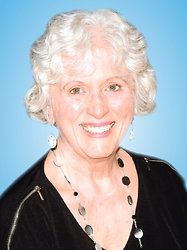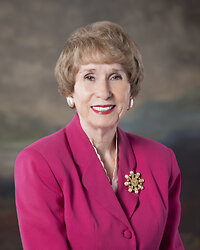Occasionally, when we are grieving, we are told by a few well-meaning people, 'Be strong. Be strong for your family.'
Frequently, 'being strong' means stuffing our feelings and pretending we are not hurting by keeping a stiff upper lip. The phrase is often used to describe someone who appears stoic. It is like Ben Bissell said in one of his motivational presentations: 'We are a society who acts like John Wayne when we are hurting. John Wayne has six arrows in his back and says. 'I'm okay. I'm fine. Let's keep going.''

This 'being strong' is apparent in what has been called 'masculine grief.' Since most men value self-reliance, they may be reluctant to seek help or share their grief. Most often they will express their grief cognitively, rather than emotionally - thinking rather than feeling. Masculine grief is often expressed by activity such as being immersed in work. Instead of expressing their feelings verbally, they can stay struck in anger or guilt. There are women who express their grief in a masculine way.
'Be strong for your mother and younger siblings,' she was told after her father died. So during her teenage and young adult years she kept her feelings to herself. Later, her body began showing the effects of the stuffing. She started having physical problems. It was much later in her life when she gave herself permission to work through her unresolved grief. The grief does not go away by 'being strong.' It simply lodges in the body and may show up as physical problems, depression or an obsession.
A different definition for what it means 'to be strong' is given by a courageous man as he recounts his hardships in a diary. He had experienced a shipwreck, physical beatings, and rejection. If that was not enough to endure, he had a physical affliction that caused many people to be repulsed by him. He said that what all this taught him was 'When I am weak, that is when I am strong.'
How can we be strong when we are weak? Before a tragedy, we may have acted as though we were self-sufficient. The rules of self sufficiency are: 'I should not have to ask for help. Nobody needs to know 'my business.'' So, even when we have six arrows in our back, we may refuse to ask for help.
If we allow ourselves to cry, to talk about our loss and let others be there for us by bringing food, baby sitting, etc., we discover what 'being strong when we are weak' means. Weakness means moving from self-sufficiency to openness. An empowering thing happens; we discover that not only do we have our own strength and resources but we have others'. When we are weak we are receptive to receive strength beyond our own.
We have heard others say after some tragedy, 'I never knew so many people cared.' Well, maybe before we weren't open with our needs.
Dr. William E. Austin is a licensed psychotherapist and holds a Doctor of Divinity degree. He is a therapist with Tidewater Pastoral Counseling Services . He is well known for his warmth and sense of humor. His book, Creating Our Safe Place - Articles on Healthy Relationships, can be purchased through www.amazon.com.
Tidewater Pastoral Counseling: 623-2700
CURRENT COLUMNS
On The Front Porch With You 
Memories of Homeby Rob LauerRelationships 
When Your Security Blanket is in the Dryerby Dr. Bill AustinPublisher’s Point 
Time To Moveby Jean Loxley-BarnardChildren First 
Dandelion Timeby Becky Adams

